选择热点
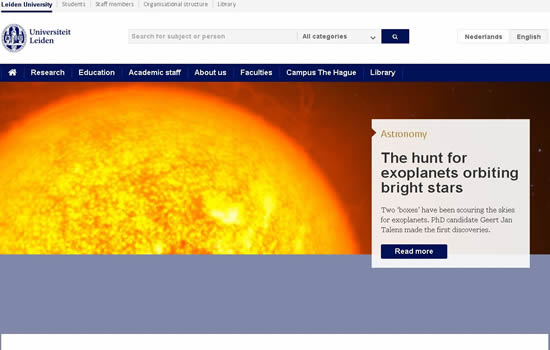 荷兰莱顿大学
荷兰莱顿大学 西班牙巴塞罗那大学
西班牙巴塞罗那大学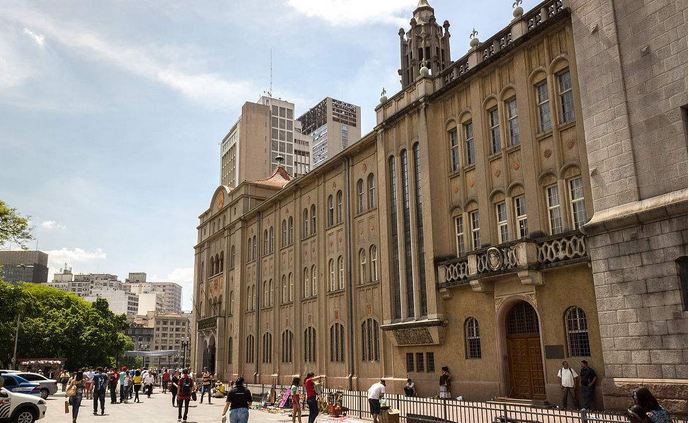 巴西圣保罗大学 University of Sao Paulo, Brazil
巴西圣保罗大学 University of Sao Paulo, Brazil 台湾南华大学 University of South China in Taiwan
台湾南华大学 University of South China in Taiwan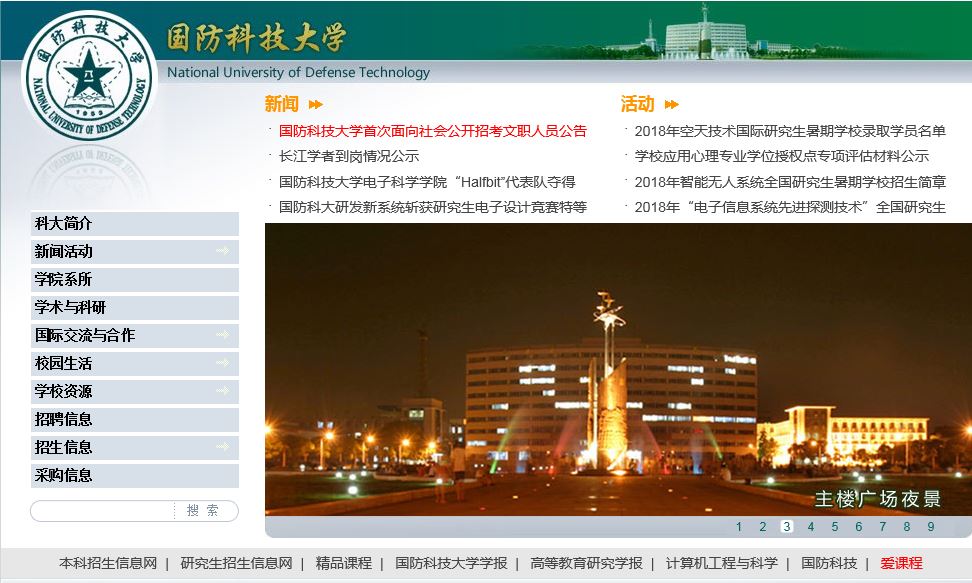 科技大学 National University of Defense Technology
科技大学 National University of Defense Technology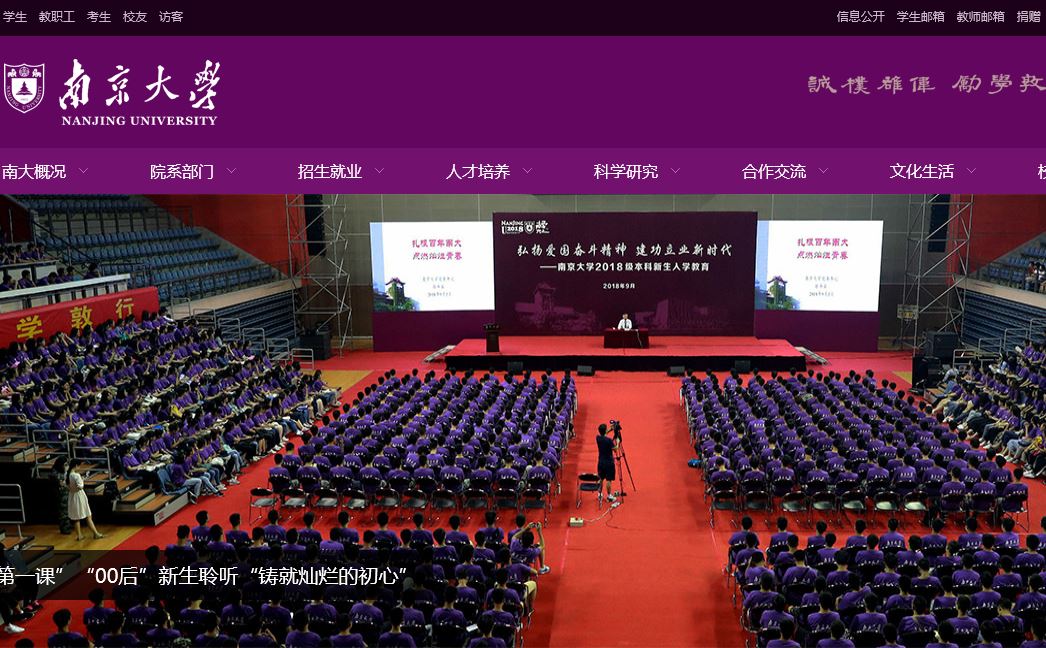 南京大学 Nanjing University
南京大学 Nanjing University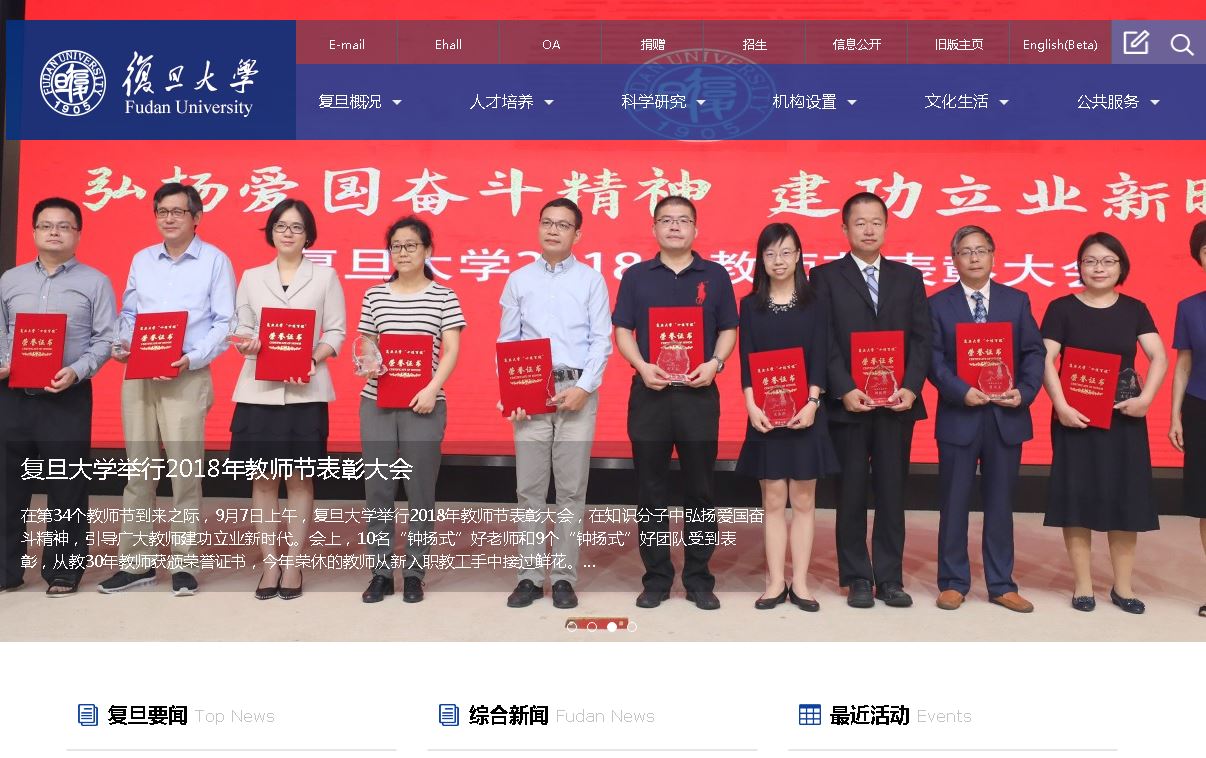 上海复旦大学 Fudan University
上海复旦大学 Fudan University 泗水大学(Ubaya)
泗水大学(Ubaya) 印尼大学 universitas indonesia
印尼大学 universitas indonesia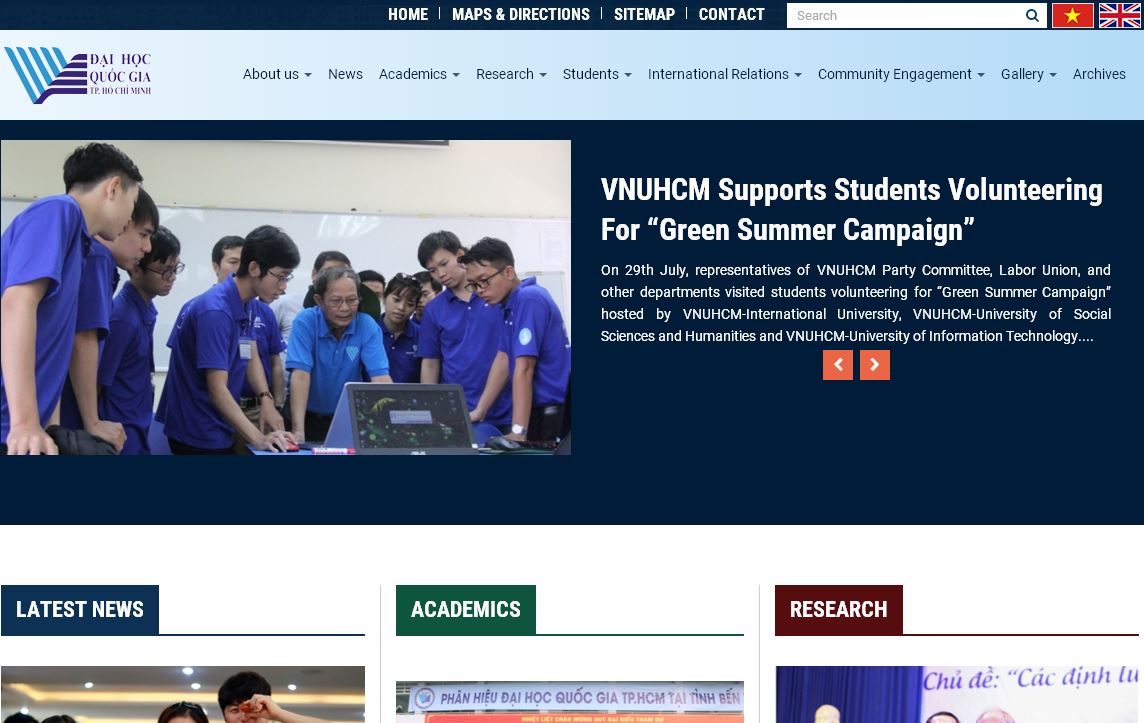 越南某大学 Vietnam National University
越南某大学 Vietnam National University 菲律宾大学 University Of The Philippines
菲律宾大学 University Of The Philippines
双语诗歌翻译:毛泽东·采桑子·重阳
发布时间:2025-01-06
来源:大学网站
行久走远,回望人生,总觉得少了些什么,也许就是少了那么一点盈盈书香,大家常说最是书香能致远,大概只有走出人生才有体会吧!
下面是小编整理的关于双语诗歌翻译:毛泽东 采桑子重阳 的资料,希望你会喜欢!
采桑子重阳毛泽东人生易老天难老,岁岁重阳。
今又重阳,战地黄花分外香。
一年一度秋风劲,不似春光。
胜似春光,寥廓江天万里霜。
TO THE TUNE OF CAISANGZIThe Double NinthMao ZedongMan ages all too easily, but not nature;The Double Ninth comes every year.
And on this Double NinthYellow chrysanthemums on the battlefield smell exceedingly sweet.
Every year autumn winds blow hard.
Autumn scenery is wholly unlike springAnd yet better:See the frosty sky and freezing water stretching endlessly far.
(丁祖馨 译)THE DOUBLE NINTH Tune: “PICKING MULBERRIES”October 1929Nature does not grow old as fast as man;Each year the Double Ninth comes round.
And now the Double Ninth comes round.
How sweet are yellow flowers on the battleground!
See autumn reign with heavy winds once every year,Unlike springtime.
Far more sublime,The boundless sky and waters blend with endless rime.
(许渊冲 译)The Double Ninth (1)– to the melody of Cai Sang ZiOctober 1929Mortals are apt to age, while Heaven remains ever livelong,There are as many returns of the Double Ninth as years are long.
Now the Double Ninth pays us another call,The aroma of battlefield xanthic florets smells exceptionally strong.
Each year brings with it a round of still gale in fall;From vernal charms this is a far cry,Yet outshining these vernal charms in all.
Attired in a myriad-li rime are the far-flung rivers and sky.
(1)“Double Ninth” refers to a traditional Chinese festival on the “ninth of Ninth Month” in lunar calendar.
(黄龙 译)THE DOUBLE NINTH (1)to the tune of Mulberry-Picking SongMan ages too easily but heaven never gets old, (2)Double Ninth comes yearly in the same mould.
This year’s Double Ninth would tellThe yellow flowers (3) on the battlefield (4) sweeter smell.
(5)Every year in autumn the wind blows with might,How different from the spring sight!
Yet in splendour the autumn could the spring defyWith its frosty and boundless water and sky.
(6)(October 1929)(1) The Double Ninth: September 9 in the Chinese lunar calendar.
The numeral 9 was worshiped by the Chinese ancients as a Yang figure, i.
e.
a masculine or positive figure.
“September” is the ninth month of the year, thus “September 9” embraces double 9’s — the ninth month and the ninth date.
The Double Ninth is a traditional festival day on which people usually ascend a height to enjoy the sight of chrysanthemum.
The Double Ninth in 1929 was October 11 in the Gregorian calendar; up to that day, the Red Army led by Mao Zedong had wiped out the local warlords of Tingjiang in the south of Fujian Province and occupied Shanghang.
Meanwhile, in the rural revolutionary bases, the agrarian revolution was carried out with great enthusiasm; this meant the overthrow of the landlords and the distribution of land among the peasant.
(2) Man ages too easily but heaven never gets old: 1) Man’s age is shown by his physiological change yet heaven’s age bears no discernible traces because its change occurs very slowly; 2)That man must get is a natural law; man dies but the universe exists for ever; 3) a possible allusion to a line of the poem “Ode to the Golden Bronze Immortal Who Takes Leave of the Palaces of the Han Dynasty” by Li He (790-816), a Tang poet, “Should heaven be sentimental, old would it be.
” The story is told in Stories of the Three Kingdoms (Chapter 105) by Luo Guangzhong (?
1330-?
1400).
The allusion is also interested in Mao Zedong’s another poem “The People’s Liberation Army Captures Nanking” (lines 7-8).
(3) The yellow flowers: the chrysanthemum flowers.
(4) the battlefield: the city of Shanghang was just occupied by the Red Army in September of the year.
(5) sweeter smell: smell sweeter than usual; believed to suggest a touch of revolutionary optimism.
(6) Mao’s preference of autumn to spring is often explained by many scholars as 1) autumn is a harvest season; 2) autumn is a time when transient things must be killed; 3) autumn is a symbol of revolution.
(辜正坤 译)THE DOULBE NINTH – to the tune of Cai Sang ZiOctober 1929Man ages all too easily, not Nature:Year by year the Double Ninth returns.
On this Double Ninth,The yellow blooms on the battlefield smell sweeter.
Each year the autumn wind blows fierce,Unlike spring’s splendour,Yet surpassing spring’s splendour,See the endless expanse of frosty sky and water.
( 毛泽东诗词 翻译组 译)【双语诗歌翻译:毛泽东·采桑子·重阳 查看网站:[db:时间]】
下面是小编整理的关于双语诗歌翻译:毛泽东 采桑子重阳 的资料,希望你会喜欢!
采桑子重阳毛泽东人生易老天难老,岁岁重阳。
今又重阳,战地黄花分外香。
一年一度秋风劲,不似春光。
胜似春光,寥廓江天万里霜。
TO THE TUNE OF CAISANGZIThe Double NinthMao ZedongMan ages all too easily, but not nature;The Double Ninth comes every year.
And on this Double NinthYellow chrysanthemums on the battlefield smell exceedingly sweet.
Every year autumn winds blow hard.
Autumn scenery is wholly unlike springAnd yet better:See the frosty sky and freezing water stretching endlessly far.
(丁祖馨 译)THE DOUBLE NINTH Tune: “PICKING MULBERRIES”October 1929Nature does not grow old as fast as man;Each year the Double Ninth comes round.
And now the Double Ninth comes round.
How sweet are yellow flowers on the battleground!
See autumn reign with heavy winds once every year,Unlike springtime.
Far more sublime,The boundless sky and waters blend with endless rime.
(许渊冲 译)The Double Ninth (1)– to the melody of Cai Sang ZiOctober 1929Mortals are apt to age, while Heaven remains ever livelong,There are as many returns of the Double Ninth as years are long.
Now the Double Ninth pays us another call,The aroma of battlefield xanthic florets smells exceptionally strong.
Each year brings with it a round of still gale in fall;From vernal charms this is a far cry,Yet outshining these vernal charms in all.
Attired in a myriad-li rime are the far-flung rivers and sky.
(1)“Double Ninth” refers to a traditional Chinese festival on the “ninth of Ninth Month” in lunar calendar.
(黄龙 译)THE DOUBLE NINTH (1)to the tune of Mulberry-Picking SongMan ages too easily but heaven never gets old, (2)Double Ninth comes yearly in the same mould.
This year’s Double Ninth would tellThe yellow flowers (3) on the battlefield (4) sweeter smell.
(5)Every year in autumn the wind blows with might,How different from the spring sight!
Yet in splendour the autumn could the spring defyWith its frosty and boundless water and sky.
(6)(October 1929)(1) The Double Ninth: September 9 in the Chinese lunar calendar.
The numeral 9 was worshiped by the Chinese ancients as a Yang figure, i.
e.
a masculine or positive figure.
“September” is the ninth month of the year, thus “September 9” embraces double 9’s — the ninth month and the ninth date.
The Double Ninth is a traditional festival day on which people usually ascend a height to enjoy the sight of chrysanthemum.
The Double Ninth in 1929 was October 11 in the Gregorian calendar; up to that day, the Red Army led by Mao Zedong had wiped out the local warlords of Tingjiang in the south of Fujian Province and occupied Shanghang.
Meanwhile, in the rural revolutionary bases, the agrarian revolution was carried out with great enthusiasm; this meant the overthrow of the landlords and the distribution of land among the peasant.
(2) Man ages too easily but heaven never gets old: 1) Man’s age is shown by his physiological change yet heaven’s age bears no discernible traces because its change occurs very slowly; 2)That man must get is a natural law; man dies but the universe exists for ever; 3) a possible allusion to a line of the poem “Ode to the Golden Bronze Immortal Who Takes Leave of the Palaces of the Han Dynasty” by Li He (790-816), a Tang poet, “Should heaven be sentimental, old would it be.
” The story is told in Stories of the Three Kingdoms (Chapter 105) by Luo Guangzhong (?
1330-?
1400).
The allusion is also interested in Mao Zedong’s another poem “The People’s Liberation Army Captures Nanking” (lines 7-8).
(3) The yellow flowers: the chrysanthemum flowers.
(4) the battlefield: the city of Shanghang was just occupied by the Red Army in September of the year.
(5) sweeter smell: smell sweeter than usual; believed to suggest a touch of revolutionary optimism.
(6) Mao’s preference of autumn to spring is often explained by many scholars as 1) autumn is a harvest season; 2) autumn is a time when transient things must be killed; 3) autumn is a symbol of revolution.
(辜正坤 译)THE DOULBE NINTH – to the tune of Cai Sang ZiOctober 1929Man ages all too easily, not Nature:Year by year the Double Ninth returns.
On this Double Ninth,The yellow blooms on the battlefield smell sweeter.
Each year the autumn wind blows fierce,Unlike spring’s splendour,Yet surpassing spring’s splendour,See the endless expanse of frosty sky and water.
( 毛泽东诗词 翻译组 译)【双语诗歌翻译:毛泽东·采桑子·重阳 查看网站:[db:时间]】
- 上一篇: 双语诗歌翻译:何其芳·秋天
- 下一篇: 双语诗歌翻译:舒婷·秋思
相关阅读
目录列表
资讯列表
英语资讯


共0条评论
网友评论温馨提示:您的评论需要经过审核才能显示,请文明发言!